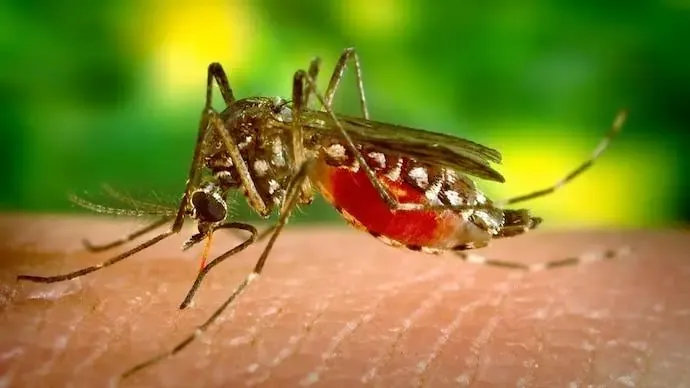According to experts, the rise in global temperatures and changing weather patterns are creating ideal breeding conditions for disease-carrying mosquitoes, such as the Asian tiger mosquito, known for transmitting diseases like dengue fever. Prof. Rachel Lowe, who heads the global health resilience group at the Barcelona Supercomputing Center in Spain, warns that these warmer, more humid conditions are fueling the proliferation of mosquitoes and the diseases they carry.
In a presentation at the global congress of the European Society of Clinical Microbiology and Infectious Diseases, Prof. Lowe underscored the urgent need for preparedness as mosquito-borne diseases are poised to spread to currently unaffected regions, including northern Europe, Asia, North America, and Australia, over the coming decades. She emphasized that the longer hot seasons resulting from climate change will expand the window for disease transmission and lead to more frequent and complex outbreaks.
The consequences of this phenomenon are already evident. Dengue fever, once confined to tropical regions, has now become the fastest-spreading mosquito-borne viral disease worldwide. The Asian tiger mosquito, responsible for transmitting dengue fever, has established itself in 13 European countries, including Italy, France, Spain, and Portugal, as of 2023.
The statistics paint a grim picture: the number of reported dengue cases has increased eightfold over the past two decades, with over 5 million cases reported to the World Health Organization in 2019 alone. Nine out of the ten most hospitable years for disease transmission have occurred since 2000, indicating a worrying trend that shows no signs of abating.
Climate breakdown, according to Prof. Lowe, will only exacerbate this situation. Droughts and floods, increasingly linked to climate change, create additional breeding sites for mosquitoes, leading to greater transmission of diseases like dengue fever. Prof. Lowe stressed the importance of assessing future disease risks and implementing early warning systems to mitigate the impact of outbreaks.
If current emission levels and population growth continue unabated, the number of people living in areas susceptible to mosquito-borne diseases is projected to double to 4.7 billion by the end of the century. This grim forecast underscores the urgent need for proactive measures to prevent and control disease outbreaks.
Efforts must focus on enhancing surveillance and early warning systems to effectively target resources to at-risk areas and prevent outbreaks from occurring. Prof. Lowe emphasized the importance of interventions aimed at reducing mosquito populations and minimizing human-mosquito contact to curb the spread of diseases.
However, mosquito-borne diseases are not the only health threat exacerbated by climate change. Prof. Sabiha Essack, head of the antimicrobial resistance unit at the University of KwaZulu-Natal in South Africa, warns that climate change is also amplifying the threat of antimicrobial resistance.
According to Prof. Essack, climate change compromises the ecological and environmental integrity of living systems, enabling pathogens to cause increasingly severe diseases. Human activities, coupled with climate change, contribute to the spread of antibiotic resistance and waterborne and vector-borne diseases.
The impact of climate change on water systems, food-producing animals, and crops threatens global food security, further exacerbating the health challenges posed by antimicrobial resistance. Prof. Essack stresses the need for urgent action to address both climate change and antimicrobial resistance to safeguard public health and ensure global food security.
In conclusion, the intertwining of climate change, mosquito-borne diseases, and antimicrobial resistance poses significant challenges to global health security. Urgent action is needed to mitigate the impact of climate change on disease transmission and antimicrobial resistance while implementing proactive measures to protect vulnerable populations. Only through concerted efforts can we hope to address these pressing health threats and safeguard the well-being of present and future generations.

